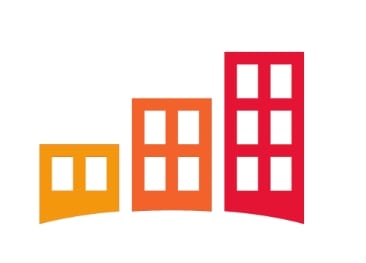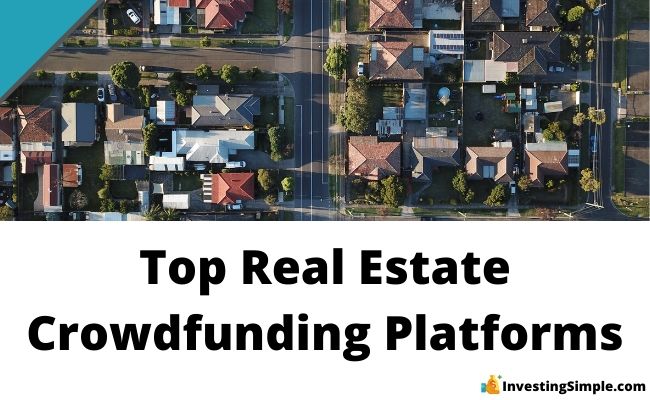





Investing Simple is affiliated with Fundrise, and we earn commissions for this endorsement of Fundrise.
It's no secret that real estate has been used as a tool for wealth generation for decades.
We all seem to have at least one friend or family member who got rich by investing in real estate. Thanks to changes in legislation, it is now easier than ever to invest in private real estate deals. This is in part due to the emergence of crowdfunded real estate investing.
In the past, private real estate investing was reserved for the elite.
These were the individuals who were lucky enough to find out about new deals first and had the capital to do something about them. The barriers to investing in real estate were high, making it an investment reserved for the elite.
The internet, and in particular crowdfunding, changed all of that.
Robinhood is a popular "all-in-one" investing app.
While they are most well-known for their commission free stock trading, they've recently shaken up the Retirement Investing World too.
Introducing Robinhood Retirement; home of the biggest IRA match on the market.
Here's what you need to know:
And don't worry, this comes with a Portfolio Builder Tool. You don't have to construct your investment portfolio from scratch if you don't want to.
Lastly, you'll even get a free stock worth up to $200 when you open a new Robinhood account using our link.

The minimum to begin investing is just $10 with the Starter Portfolio.
More importantly, you do not need to be an accredited investor.
Fundrise has portfolios for growth and income investors, among others.

Income investors are looking for consistent dividends or distributions from their investments.
RealtyMogul delivers that through their Realty Mogul Income REIT which pays monthly distributions. These can be reinvested back into the REIT or deposited directly to a bank account.
This REIT is available to all investors. The $5,000 minimum is higher than other alternatives.
One of the problems investors often run into when researching different sites is that many of them are reserved for accredited investors only. For those who are not familiar with the term, an accredited investor is someone who is allowed to be involved with investments that may not be registered with financial authorities.
Because regulatory agencies like the SEC and FINRA require a specific and intense verification process for investment firms who market to non-accredited investors, firms will often only allow accredited investors to participate.
Regulatory agencies expect that accredited investors who are considering these unregulated investments will do their own due diligence on the opportunity. They also understand that these investors meet high net worth or income requirements, giving them a greater risk tolerance.
That being said, we are going to share with you a list of crowdfunded real estate sites that do not require you to be an accredited investor. If you meet the minimum investment threshold and this investment platform is available in your state, you are free to invest as a non-accredited investor!

Fundrise was founded in 2010, giving it a long operating history.
Fundrise is an online real estate company that allows regular investors to participate in private commercial and residential properties through a pooled investment platform.
Click here to view Fundrise investments!
Investors can buy shares of Fundrise's funds by selecting one of their strategies: Fixed Income, Core Plus, Value Add, or Opportunistic.
Each one of these strategies has different goals and potential risks, and this provides a wide array of options for their diverse clientele base.
The company determines the mix of eREITs and eFunds in each plan, along with the underlying properties. There are Advanced and Premium account levels that offer access to more real estate projects and additional features.
Fundrise opens up real estate investment opportunities to those who are not traditionally considered wealthy investors.

RealtyMogul formally launched in 2013.
RealtyMogul is an online platform that enables both non-accredited and accredited investors to invest in commercial real estate.
They offer two main investment options: public, nontraded REITs and private placements.
Click here to view RealtyMogul investments!
Private placements, available to accredited investors, include opportunity zone eligible investments and typically involve single property or small portfolio deals with varying investment minimums and a two to 10-year time horizon.
RealtyMogul boasts a significant track record, having financed over 27,000 apartment units valued at more than $5.7 billion and amassed a membership base of over 250,000 registered members.

Arrived Homes offers investors an opportunity to participate in real estate without the headache.
Like the other platforms in this list, Arrived Homes strives to open the door of real estate to everyone, but their offering is unique in a few ways.
This segment is sponsored by Arrived Homes.
Arrived specializes in single family real estate all across the country. The company carefully vets real estate markets to determine which ones have the most income producing potential.
They then find the neighborhoods in those markets with the most potential and purchase properties that meet their criteria.
Each property is then placed in a Series LLC where investors can purchase shares of the property. Arrived qualifies as a REIT, or real estate investment trust, and is taxed accordingly.
Another aspect that makes Arrived so unique is that each tenant is a co-owner of the property, meaning that interests in the property are aligned.
Investing with Arrived is a simple process.
You will simply browse the properties available, reserve the number of shares you would like, and fund your account by linking a bank account.
With this investment comes a few key points to understand: